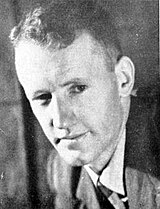Rhodesian general election, 1970
|
|
||||||||||||||||||||||||||||||||||||||
|
||||||||||||||||||||||||||||||||||||||
|
||||||||||||||||||||||||||||||||||||||
|
||||||||||||||||||||||||||||||||||||||
The Rhodesian general election of 10 April 1970 was the first election which took place under the revised, republican, constitution of Rhodesia. The country had declared itself independent in November 1965, shortly after the previous election; the Rhodesian Front government had always disliked the 1961 constitution and made sure to change it by the time of the next one.
Following the referendum on the new constitution in June 1969, the timing of the next election was laid out: it would happen once the new Electoral Act had been put in place, and once delimitation of the new constituencies was complete.
This gave opponents of the Rhodesian Front a chance to organise in time for the election. At the Rhodesian Front congress on 23 October 1969, the party chairman Ralph Nilson warned the government to avoid complacency. The Centre Party had been founded in 1968 as a non-racial party which aimed for 'Middle of the Road' political opinion; it supported "advancement of the African on merit" and gradual abolition of racial discrimination and was led by Pat Bashford; it was strongest in the urban areas. Ian Smith described it as "the real opposition".
Robin James, an independent MP who had been expelled from the Rhodesian Front for opposing Ian Smith, formed the Conservative Alliance on 26 June 1969 which campaigned for the preservation of the European and his civilisation in Rhodesia. James attacked the Rhodesian Front for 'multiracial, integrationist policies'; his party was subsequently renamed the Republican Alliance. Eligible African voters also began to form political parties, among them the National People's Union which aimed to unite Africans against white supremacy without violence.
On 1 March, Clifford Dupont as 'Officer Administering the Government' signed a proclamation dissolving Parliament and bringing into effect the new constitution at midnight (Rhodesia therefore became a unilaterally-proclaimed Republic on 2 March). The general election was set for 10 April.
...
Wikipedia

